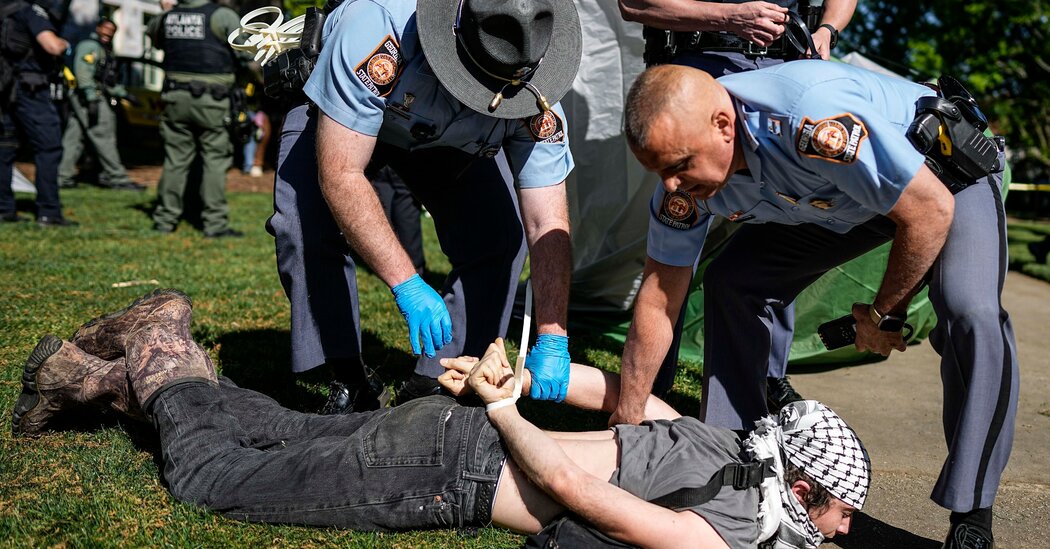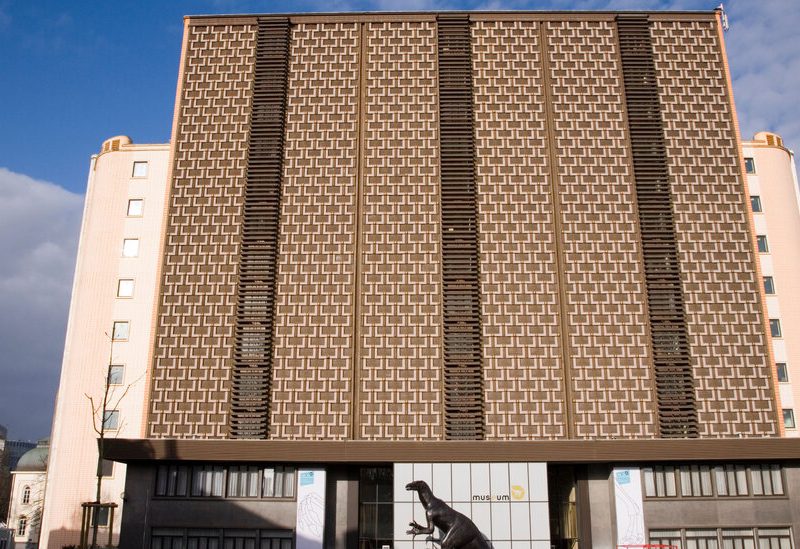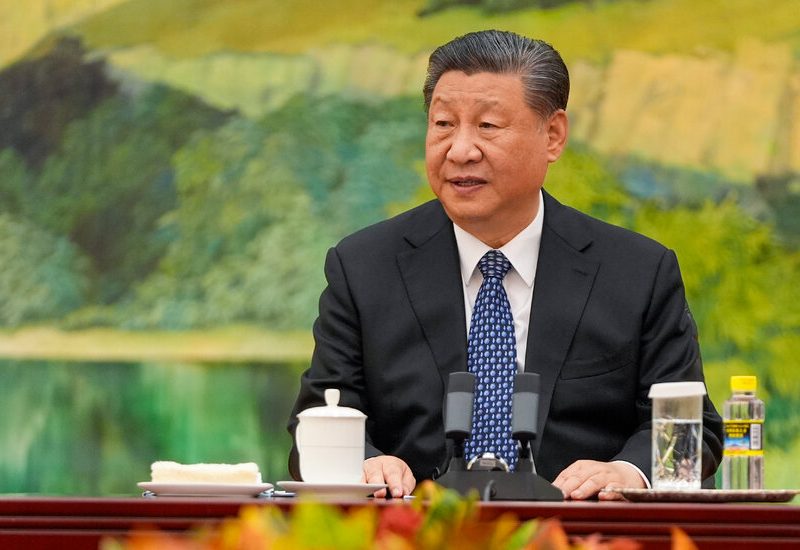Police officers swept onto the ordinarily serene campus of Emory University in Atlanta on Thursday, using what their department later described as “chemical irritants” to help subdue demonstrators. It was one of the latest clashes between police forces and a pro-Palestinian protest movement that has cascaded across American campuses.
More than 400 protesters have been taken into police custody on campuses nationwide since April 18, when the arrests of more than 100 protesters at Columbia University in New York set off a fresh wave of student activism.
Administrators have responded by calling in law enforcement, removing encampments, scaling back graduation plans and threatening academic consequences. The crackdown comes as some politicians have demanded a stronger response, saying the rhetoric and actions of some protesters puts Jewish students in danger.
The police in Boston arrested 108 protesters at Emerson College late Wednesday, just hours after the Los Angeles police arrested 93 people who had refused to disperse on the University of Southern California campus. In each case, it was unclear how many of the arrested demonstrators were students.
Earlier on Wednesday, dozens of police officers, many of them in riot gear and some on horseback, arrested 57 people at the University of Texas at Austin. A school spokesman said about half of those detained were unaffiliated with the university, and Diana Melendez, a spokeswoman for the county attorney’s office, said charges against many had been dropped after the office found legal “deficiencies” in their arrests.
At Emory on Thursday morning, demonstrators screamed as the police wrestled with protesters on the ground and escorted others away. Protesters accused the officers of using pepper spray and tear gas to break up the encampment they had established a few hours earlier.
The Atlanta Police Department said in a statement that its officers had “used chemical irritants during the incident.” The department did not answer questions about what type of irritant it used, but the Georgia State Patrol said separately that its troopers used pepper balls for crowd control. It denied using tear gas.
Separately, video footage reviewed by The New York Times showed a trooper using a stun device on a demonstrator who was on the ground. The state authorities, in a statement on Thursday evening, said the demonstrator had “actively resisted arrest.”
Emory’s vice president for public safety, Cheryl Elliott, said that at least 28 people had been arrested, including 20 with ties to the school — a striking departure from the university’s suggestion earlier Thursday that no one involved in the encampment was affiliated with Emory.
As universities struggled to quell the unrest, some lawmakers have called for stronger tactics, including House Speaker Mike Johnson, who during a visit to Columbia on Wednesday asked the White House to take action and said it should eventually consider using military force.
Universities have deployed the police and suspended students under pressure from such lawmakers, as well as donors and alumni, who have called the demonstrations antisemitic.
Still, new protests continue to erupt continue to erupt. Many student activists say they are galvanized by the clampdowns on largely peaceful protests on other campuses and want their universities to severe financial ties to companies that protesters say make weapons being used on Palestinians.
“We have to do everything we can, despite the repression by the state or the university to try to shut us down,” said Bella Montealegre, an Emory student who said “solidarity with Columbia” had drawn many of her classmates to the protest area. “We have to continue to be steadfast toward Palestinian freedom.”
J. David Goodman, Sean Keenan and John Yoon contributed reporting.



